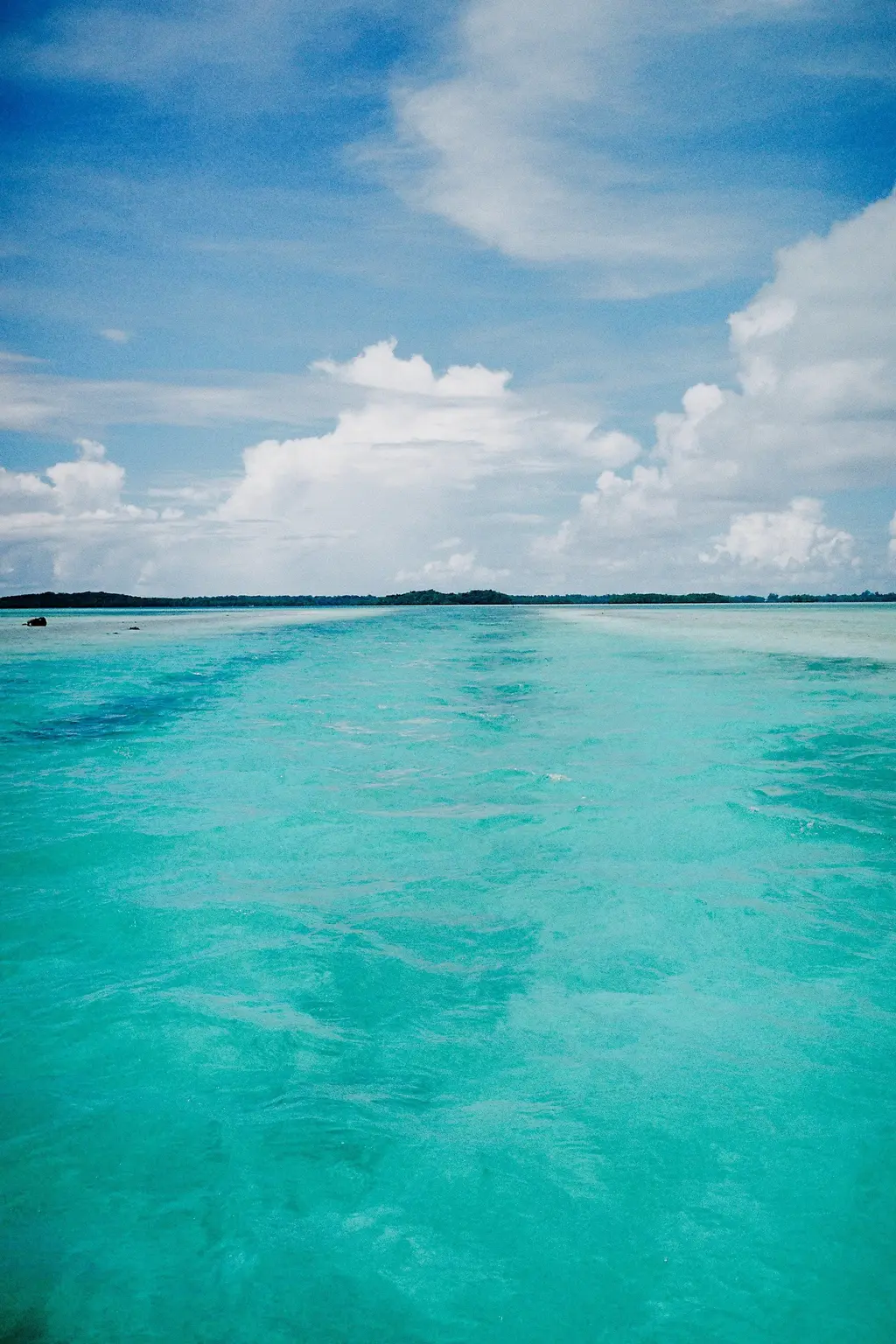How tourism & climate change are changing Palau forever
- Text by The Leafhopper Project
- Photography by The Leafhopper Project

Visiting at least one of the countries that make up Micronesia had been a goal of ours for a long time. Finally, last year gave us the perfect excuse.
We’d been developing a photography project about coral bleaching, a phenomenon that results in corals turning completely white due to vast conditional changes, such as rising ocean temperatures and overexposure to sunlight. Over the last few years, it’s been happening faster and faster due to climate change, and Micronesian states are some of the most affected.
After visiting West Papua – home to one of the richest remaining biodiversities of coral and soft corals – we headed to Palau, one of the least populated countries in the world. There, climate change is affecting both the status of the reefs and the island’s fishing tradition, which is especially important given its population traditionally lives from the sea.
As journeying there is costly, we decided to stay for just 3 days. We knew that we needed to visit the Rock Island archipelago (also called ‘Chelbacheb’), but the only way of getting to the area was through a tourist operator after paying a conservation fee of $100 per person. So, our first day was spent just walking around Koror, exploring the city and trying to withdraw money.
When we woke up and took a walk the following morning, we had a weird feeling. The atmosphere felt more akin to Hawaii than any other place in the region. Though Micronesia achieved independence in 1994, there’s a strong hangover from its days as a US colony: the dollar is the official currency, supermarkets feel American, kids play baseball and the English language slang is heavily influenced by the US.
During the day we spent walking around the city, we were so hot we could have melted. Even though Palau is an island country surrounded by sea, swimming is illegal apart from on private beaches. It was also hard to find people to talk to, as the streets were not very populated, while most of the workers in restaurants and hotels were from other countries. We wanted to go to the famous Jellyfish Lake – a place where jellyfishes cannot sting humans, due to the low strength of their skin – but due to the tourism, most of the jellyfishes had died.
The next day, we finally made it to the Rock Islands on a snorkel tour. Most of the coral we saw was in a very advanced bleached state. We also came across some giant clams that were now endangered due to overfishing. When we finally got the chance to talk to some of the locals, they explained to us they wanted to see ‘big, tall buildings’ being built – they were bored of ‘all this nature’.
During another tour, one of the stops was at a long beach in the middle of the ocean, where one lonely starfish was the a victim of a large tourist group taking selfies one by one. We also stopped by an island called Carp Island, the only one in the area that has a resort. Within 20 minutes, we had filled a bag with the plastic and trash we found there on the shore.
When you enter into Palau, they stamp your passport and make you sign a pledge that states: ‘I shall not take what is not given, I shall not harm what does not harm me, the only footprints I shall leave are those that will wash away’. While this is a beautiful sentiment, we found that it’s perhaps not true to the reality on the island.






 See more of The Leafhopper Project’s work on their official website, or follow them on Instagram.
See more of The Leafhopper Project’s work on their official website, or follow them on Instagram.
Enjoyed this article? Like Huck on Facebook or follow us on Twitter.
Latest on Huck

Clubbing is good for your health, according to neuroscientists
We Become One — A new documentary explores the positive effects that dance music and shared musical experiences can have on the human brain.
Written by: Zahra Onsori

In England’s rural north, skateboarding is femme
Zine scene — A new project from visual artist Juliet Klottrup, ‘Skate Like a Lass’, spotlights the FLINTA+ collectives who are redefining what it means to be a skater.
Written by: Zahra Onsori

Donald Trump says that “everything is computer” – does he have a point?
Huck’s March dispatch — As AI creeps increasingly into our daily lives and our attention spans are lost to social media content, newsletter columnist Emma Garland unpicks the US President’s eyebrow-raising turn of phrase at a White House car show.
Written by: Emma Garland

How the ’70s radicalised the landscape of photography
The ’70s Lens — Half a century ago, visionary photographers including Nan Goldin, Joel Meyerowitz and Larry Sultan pushed the envelope of what was possible in image-making, blurring the boundaries between high and low art. A new exhibition revisits the era.
Written by: Miss Rosen

The inner-city riding club serving Newcastle’s youth
Stepney Western — Harry Lawson’s new experimental documentary sets up a Western film in the English North East, by focusing on a stables that also functions as a charity for disadvantaged young people.
Written by: Isaac Muk

The British intimacy of ‘the afters’
Not Going Home — In 1998, photographer Mischa Haller travelled to nightclubs just as their doors were shutting and dancers streamed out onto the streets, capturing the country’s partying youth in the early morning haze.
Written by: Ella Glossop



